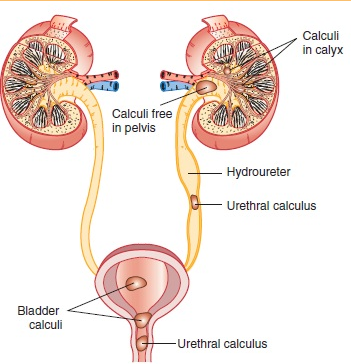Does homeopathy have any treatment for kidney stones????
Homeopathy is the most effective mode of treatment for KIDNEY STONE.
Yes, homeopathy has treatment for acute renal pain, treatment for removing the stone as well as to prevent recurrence of stone.
Homeopathic Treatment For Kidney Stones
Understand you’re complaint first.
What Are Kidney Stones?

Kidney stones, or renal calculi, are solid masses made of crystals. Kidney stones usually originate in your kidneys but can develop anywhere along your urinary tract. The urinary tract includes the kidneys, ureters, bladder, and urethra.
Kidney stones are known to be one of the most painful medical conditions. The causes of kidney stones vary according to the type of stone.
Types of Kidney Stones
Not all kidney stones are made up of the same crystals. The different types of Homeopathic Treatment For Kidney Stones include:
Calcium
Calcium stones are the most common. They can be made of calcium oxalate (most common), phosphate, or maleate. Eating fewer oxalate-rich foods can reduce your risk of developing this type of stone. High-oxalate foods include potato chips, peanuts, chocolate, beets, and spinach.
Uric Acid
This type of kidney stone is more common in men than in women. They can occur in people with gout or those going through chemotherapy. This type of stone develops when urine is too acidic. A diet rich in purines can increase urine’s acidic level. Purine is a colorless substance in animal proteins, such as fish, shellfish, and meats.
Struvite
This type of stone is found mostly in women with urinary tract infections. These stones can be large and cause urinary obstruction. These stones are caused by a kidney infection. Treating an underlying infection can prevent the development of struvite stones.
Cystine
Cystine stones are rare. They occur in both men and women who have the genetic disorder cystinuria. With this type of stone, cystine — an acid that occurs naturally in the body — leaks from the kidneys into the urine.
Risk Factors for Kidney Stones
The greatest risk factor for kidney stones is making less than one liter of urine per day. This is why kidney stones are common in premature infants who have kidney problems.
Kidney stones are most likely to occur between the 20 to 40 age group. Different factors can increase your risk of developing a stone A history of kidney stones can increase your risk, as does a family history of kidney stones.
Other Risk Factors Include:
- Dehydration
- Obesity
- High-protein, salt, or glucose diet
- Hyperparathyroid condition
- Gastric bypass surgery
- Inflammatory bowel diseases that increase calcium absorption
- Taking medications such as diuretics, anti-seizure drugs, and calcium-based antacids
Recognizing the Symptoms and Signs of a Kidney Stone
Kidney stones are known to cause severe. pain Symptoms of kidney stones may not occur until the stone begins to move down the ureters. This severe pain is called renal colic. You may have pain on one side of your back or abdomen. In men, pain may radiate to the groin area. The pain of renal colic comes and goes, but can be intense. People with renal colic tend to be restless.
Other symptoms of kidney stones can include:
- Blood in the urine (red, pink, or brown urine)
- Vomiting
- Nausea
- Discolored or foul-smelling urine
- Chills
- Fever
- Frequent need to urinate
- Urinating small amounts of urine
In the case of a small kidney stone, you may not have any pain or symptoms as the stone passes through your urinary tract.
Why Kidney Stones Can Be a Problem
Stones don’t always stay in the kidney. Sometimes, they pass from the kidney into the ureters. Ureters are small and delicate, and the stones may be too large to pass smoothly down the ureter to the bladder. Passage of stones down the ureter can cause spasms and irritation of the ureters as they pass, which causes blood to appear in the urine.
Sometimes stones block the flow of urine. This is called a urinary obstruction. Urinary obstructions can lead to kidney infection (pyelonephritis) and kidney damage.
Testing for Homeopathic Treatment For Kidney Stones and Diagnosing Kidney Stones
Diagnosis of kidney stones requires a complete health history assessment and a physical exam. Other tests include:
- Blood tests for calcium, phosphorus, uric acid, and electrolytes
- Blood urea nitrogen (BUN) and creatinine to assess kidney functioning
- Urinalysis to check for crystals, bacteria, blood, and white cells
- Examination of passed stones to determine the type
The following tests can rule out obstruction:
- Abdominal X-rays
- Intravenous pyelogram (IVP)
- Retrograde pyelogram
- Ultrasound of the kidney (this is the preferred study)
- MRI of the abdomen and kidneys
- Abdominal CT scan
How Kidney Stones Are treated homeopathically.
In homeopathy, we have different Treatment like
- Give relief from acute renal pain.
- Treatment for removing the stone. (size of the stone is less than 9mm)
- Prevent recurrence of stone.
In today’s time, homeopathy is the most effective treatment for renal calculi without any surgical intervention.
Kidney Stone Prevention
Proper hydration is a key preventive measure by drinking up to 12 glasses of water daily. Drinking more fluids increases the amount of urine you pass, which helps flush the kidneys.
Your doctor may prescribe medications to help prevent the formation of calcium and uric acid stones. If you’ve had a kidney stone, or you’re at risk for a kidney stone, speak with your doctor and discuss the best methods of prevention.


